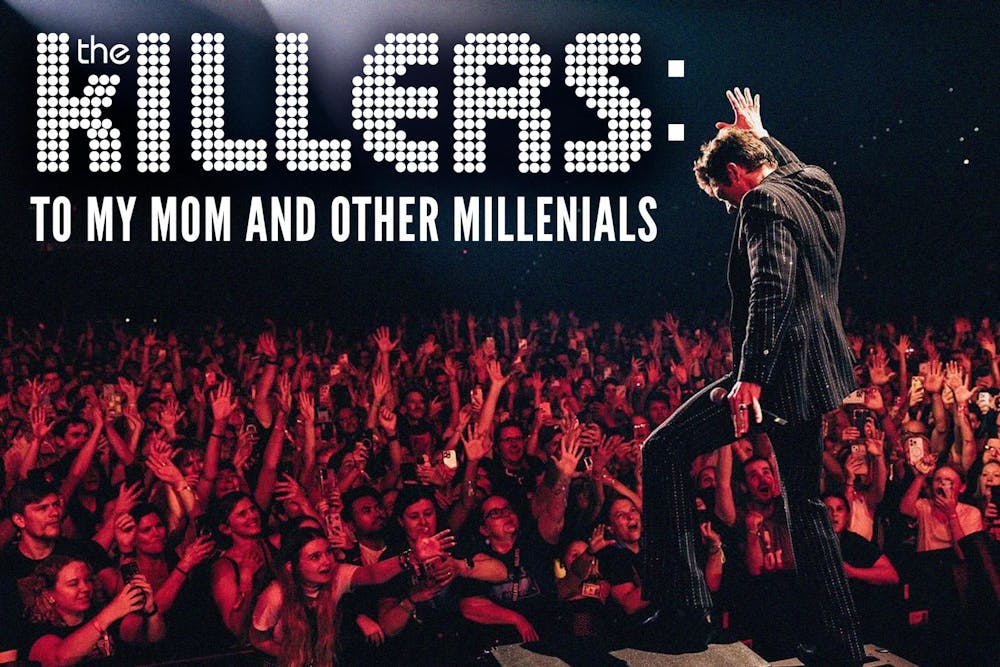In 2024, The Killers’ debut album “Hot Fuss” turned 20 years old, housing generation-defining tracks like “Jenny Was a Friend of Mine,” “Smile Like You Mean It” and “Somebody Told Me.” But if you’re a Zoomer reading this and thinking to yourself “Hmm, they sound familiar,” you likely know them from the pregame classic “Mr. Brightside.” To honor the anniversary of “Hot Fuss,” as well as the universal love and acclaim it receives, I took it upon myself to listen to see if time has eroded The Killers’ relevance (though technically, this was a relisten, if you count my mom playing it on CD in the car when I was a child).
Almost immediately after pressing play and hearing “Jenny Was a Friend of Mine” begin, the project felt foreign in the same way that Canada does. This is to say that while discussions of lovers’ quarrels, first heartbreaks and jealousy are not strictly limited to the genre of rock or period of the early aughts, even though you might squint and find that the storytelling here seems similar, at its core, it is not in the voice of myself and my peers.
The grunge influence and angst throughout this album sets it apart from the sounds of the decades preceding and following its release, even in “All These Things That I’ve Done,” which revolves around Brandon Flowers’ (the frontman of The Killers) frustrating relationship with the Mormon faith. At times he refuses the ambiguity that becomes central to The Killers’ storytelling, proclaiming “I got soul, but I’m not a soldier” in reference to his desire to be one with the Mormon community without needing to be in opposition to those who are different than himself.
The album came at a time when the eldest millennials were reaching 25, the dreaded “quarter life crisis,” and the youngest of the bunch were in the (equally dreaded) early stages of puberty. On either side of the spectrum, these periods are thought to represent a shift, one being the end of childhood and entry into adolescence while the other is the tumbling into the real world; a world that is radically different from the world in which they grew up and that only grows more alien.
In many ways, I almost want this project to continue to feel unrelatable, for the frustrations of young adulthood to be some obscure concept only characteristic of the generation that precedes mine. As 2025 begins, however — and TikTok loves to remind me — Gen Z are the new millennials. We’re no longer the new kids on the block: life and adulthood are no longer foreign concepts, and neither are the emotional frustrations that come with growing up, which make albums like “Hot Fuss” feel fresh even decades after release.
Now, millennials, I still wouldn’t say that I completely understand you yet. I can still navigate social media trends and updates without missing major references and unfortunately don’t have a mustache tattoo on the inside of my finger. But as I watch your favorite media become classics, I look forward to the opportunity to see the same happen with mine.










